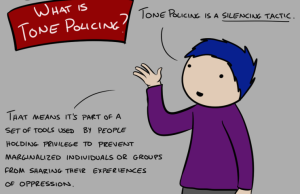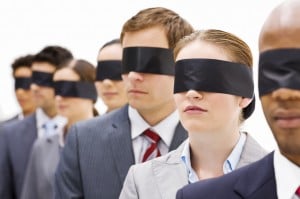What does religious freedom mean to you?
Respect for your religious traditions? The ability to practice your faith without being ostracized? Having Starbucks print your religious holidays on their cups?
That last example crosses the line beyond the scope of “freedom,” but as we discovered in 2015, some Christians interpret a red cup at Starbucks as an attack on their religion.
When you’re used to celebrations of your religion everywhere you go, recognizing that some people don’t share your religion can feel like something’s being taken away from you.
The Starbucks red cup controversy reminds me of the “War on Christmas” – a concept that confused me when I first heard it at around twelve years old. Discussions about Christianity being “under attack” were all over the news.
The topic came up during a Christmas celebration at my aunt’s house, which was decorated with wreaths and plaques reading “Jesus Is the Reason for the Season.” My aunts and uncles complained that some stores’ employees were saying “Happy Holidays” instead of “Merry Christmas.”
“But isn’t that because people are celebrating other holidays?” I asked.
That was the problem, they said – focusing on all holidays instead of only Christmas. That didn’t sound right to me, but I stayed quiet.
I’d go back and give my young self a high five if I could.
Because there was nothing wrong with questioning the message of that conversation. My relatives were demonstrating what it means to have Christian privilege – and it’s important to recognize that.
I think back to their belief that hearing “Happy Holidays” means Christianity is “under attack,” and then I consider what Sofi Ali-Khan wrote in her heartbreaking letter to non-Muslim allies:
“The rhetoric about Muslims has gotten so nasty – and it’s everywhere, on every channel, every newsfeed. It is clearly fueling daily events of targeted violence, vandalism, vigilante harassment, and discrimination.
“I want you to know that it has gotten bad enough that my family and I talk about what to keep on hand if we need to leave quickly, and where we should go, maybe if the election goes the wrong way, or if folks get stirred up enough to be dangerous before the election…”
In this moment, violent Islamophobic attitudes are everywhere, led largely by presidential candidates like Donald Trump – people who have a chance of holding the most powerful position in the US.
American Muslims fear for their lives, while American Christians can find time to complain about cups at Starbucks – this is what Christian privilege looks like.
It’s not about playing the Oppression Olympics of who has it worse – but the truth is, there’s no comparison at all. Being Christian in the US comes with the benefit of not having prominent political figures incite violence against you.
We have to recognize that everyone who’s not Christian is at a disadvantage. Valuing religious freedom means we have to do something about it.
What Is Christian Privilege?
Christian privilege is a set of advantages that benefit Christians, but not people who practice other religions or no religion at all.
It shows up in many places throughout the world, especially Western countries. While there are some places where Christians are persecuted for their faith, here in the United States, Christianity is treated as the norm.
That means that American Christians – even those who aren’t particularly religious – can openly express their faith, while people affiliated with other religions or no religion are othered and marginalized for practicing theirs.
Christians can get everything from legal advantages – like not having your religion count against you in child custody courts – to social perks, like having strangers wish you a “Merry Christmas” without even knowing if that’s a holiday you celebrate.
Compare that experience with being a Muslim who’s profiled by law enforcement, targeted for violent attacks, and disparaged by politicians.
Americans often cite “freedom of religion” as a reason to be proud of our country. But the truth is, only Christians are free to practice their faith openly – and everyone else is systematically oppressed for doing so.
Does Having Privilege Mean Christians Are Bad People?
If you’re a Christian, you might be skeptical about the idea of having privilege, and there’s a reason for that. When you’re used to being treated as normal, it’s easy to forget that the normalization of one group comes at a cost for people who don’t fit the “norm.”
I’m not saying you’re doing something wrong by practicing your faith.
Just like male privilege and white privilege don’t mean that all men or all white folks are bad people, discussing Christian privilege isn’t an attack on Christianity itself. I’m well aware that many Christians are good people who’d never mean to ostracize others for their religious beliefs.
I can tell you the long story of my faith journey another time. But for now, suffice to say that I was raised as a Christian, and throughout my adult life, I’ve been in and out of churches and faith communities.
So I’ve benefitted from Christian privilege – and I’ve also spent time questioning why I’ve received perks denied to folks who aren’t Christian.
And believe me, I know being a Christian in the US doesn’t always mean you have it easy.
The pushback against Christian domination sometimes shows up as putting down Christianity. In many areas of life – including many activist circles – being a person of faith is considered a bad thing, and you might have been ridiculed or excluded because of your religion.
Even though some of the most progressive, kind, and fiercely feminist folks I know are Christians, I understand why they’re not the first folks to come to some people’s minds when they think of Christianity.
Christianity as a whole has caused a lot of pain by marginalizing, forcibly converting, and abusing people who aren’t Christian. And while there’s nothing inherently wrong with practicing Christianity, all Christians in the US get to benefit somehow from the way Christianity insists on being the dominant norm in this country.
And we need to be aware of that and stand for religious freedom for everyone – instead of feeling entitled to trampling over other people’s beliefs as a way of expressing our own.
If your faith is important to you, then you have some idea of how critically important it is for everyone to be able to practice their own faith or to not be religious at all.
So here are some of the many ways Christian privilege shows up in our society.
1. You Get Time Off for Your Major Religious Holidays
It’s so common to get days like Christmas and Easter off from work and school that many people don’t think twice about it. Christmas is a federally recognized holiday, and every year, our entire country shifts to focus on it in stores, schools, and workplaces.
But not everyone celebrates Christmas. The widespread assumption that everyone does can harm people of other faiths – many of whom can’t ask for time off for their holidays without risk of being penalized or ostracized.
For instance, as Miri Mogilevsky pointed out in her article on how Christian privilege shows up during the holidays, lots of people inaccurately refer to Hanukkah as “Jewish Christmas” – revealing that they regard Christmas as the default winter holiday.
If you’re an employer, you might even think giving employees time off in winter means Jewish employees get “their version” of Christmas off, too.
Actually, Miri says, “the Jewish version of the ‘holiday season’ takes place early in fall and includes Rosh Hashanah (the Jewish New Year), Yom Kippur (the Day of Atonement), and the days before and between them.”
Treating Christmastime like it’s the only important holiday season excludes everyone else from the privilege of spending important days with their loved ones.
2. You Can Wear Symbols of Your Religion Without Being Stereotyped as Dangerous
I can wear a cross around my neck without expecting anyone to bat an eye at it.
But for people like Muslims and Sikhs, wearing symbols of their faith comes with the risk of harassment and abuse.
After tragedies like 9/11 and the Paris terrorist attacks, Islamophobic violence rises. Muslims (and Sikhs erroneously identified as Muslims) have had law enforcement called on them, been verbally attacked, physically assaulted, and even killed just for wearing a head covering in public.
3. If You’re Tried in Court, You’re Likely to Be Judged by a Jury That Shares Your Faith
With Christianity so commonly treated as the norm, it’s unlikely that jurors would hold your Christian faith against you. Someone who practices a faith that’s seen as strange or dangerous doesn’t get that benefit.
For instance, if man on trial has a traditional African spiritual practice that jurors associate with imperial tropes of “savage,” “uncivilized” African religions, the jury might judge the defendant negatively.
The bias in favor of Christians is clear when custody trials involve parents of different faiths – you’re more likely to get custody of your children if you’re Christian.
4. Politicians Who Create and Uphold Laws Are Likely to Share Your Faith
Society’s bias toward Christianity is also clear around election time. Christians running for office can openly share their faith without losing votes.
In fact, being a practicing Christian often works in favor of political candidates. How many times has the image of a presidential candidate attending church with his family come up as a positive picture?
As a result, Christians make up the majority of the leaders who establish the laws we’re all expected to live by – and that’s not because other people aren’t running for office.
For example, Tanya Basu pointed out that while Hindus are thriving in the US, Tulsi Gabbard is the only one in Congress. Gabbard’s story shows the widespread bigotry, misunderstandings, and negative backlash Hindus face when they run for political office.
It’s nothing like the respect and support Christian leaders get in return for expressing their faith.
5. Politicians Who Share Your Faith Can Base Decisions on Their Religion
People who aren’t Christian might not be harmed by Christian leadership if we actually had separation of Church and State.
The constitution says we do – but the reality is that Christianity influences the government every day.
From shutting down abortion clinics, to placing creationism and abstinence only education in schools, to spending years blocking marriage equality, Christian politicians can effectively apply their religious beliefs as law, without being labeled extremists.
Of course, that’s not much of a perk for a queer, pro-choice, sex positive Christian like me. But even though my interpretation of Christianity is very different from conservative politicians’, I recognize that people in positions of authority can cite Christianity in decisions affecting the whole country.
I can’t ignore that this gives me certain advantages, like having our leaders cite prayer as a source of comfort after tragedies. That’s not everyone’s preferred method of coping, but it works for me, and it’s assumed that it works for everyone else, too.
6. You Aren’t Asked to Speak on Behalf of Your Entire Faith
Sometimes people try to speak on behalf of all of Christianity, and when they’re people like conservative politicians trying to limit abortion access, I really wish they’d stop.
That kind of rhetoric spreads misconceptions about who I am as a Christian, and that’s frustrating to deal with. But Christian domination – especially conservative, evangelical domination – is to blame for that. It’s not the same as oppression.
On the other hand, since non-Christian religions are so othered, people of those faiths are often treated like a strange monolith.
The only pagan in a workplace, for example, can be subject to all kinds of rude questions with the expectation that she can answer for all pagans.
7. You Can Go Without Knowing About Other Faiths Without Consequence
There’s nothing inherently wrong with asking questions, as long as you’re not intrusive, entitled, or expecting someone to educate you.
Genuine curiosity is understandable – since the option of being oblivious to other peoples’ faiths is one of the privileges of being a Christian in the US.
As the dominant religion, Christianity is everywhere in our society – represented on television, shaping our culture’s views on sex and marriage, influencing school curriculum.
In the thirteen states where schools use tax payer money to teach creationism, even non-Christian students have to learn this Christian-based belief system in order to succeed.
A Hindu student doesn’t learn their creation stories as fact in school – and since Christianity is normalized, speaking about their own beliefs might lead teachers and other students to treat them like they’re “backwards,” “idol-worshippers,” or fitting other misconceptions about Hinduism.
That student would usually have to wait to take an elective course in college to find their spiritual beliefs represented in school – and you can go without ever learning about Hinduism or other traditions if you want to.
As a result, harmful myths about non-Christian religions, agnosticism, and atheism are pretty common.
8. Your Community Can Build and Attend a Place of Worship Without Being Targeted for Violence
Many Americans never learn anything about Islam – and then what they do learn is based on Islamophobic lies spread by biased media.
Because of those lies, Islam is an example of a religion whose places of worship are targeted for violence.
Around the country, mosques have been driven out of town, vandalized, and set afire. In some places, groups of people are openly carrying guns at anti-Islam rallies outside of mosques.
Many Muslims can’t attend their place of worship without threats of violence.
Black churches have also been targeted in racially motivated attacks.
I can’t even imagine how horrible it feels to worship under that threat, because I don’t have to experience that when I go to church – at least not solely on the basis of religion.
9. People of Your Faith Who Commit Acts of Violence Aren’t Said to Represent Your Entire Faith
“Was he radicalized?” “Is he connected to radical Islam?” “This is an act of terrorism!”
These are phrases you can expect from mainstream news outlets after an Arab Muslim, or even anyone suspected to be an Arab Muslim, commits an act of violence – even before news outlets have all the details.
If an attacker has ties to terrorist groups, many people equate all of Islam with terrorism.
Innocent Muslims are then targeted for surveillance, profiled for invasive TSA screenings, and judged as dangerous. It’s not unusual to hear everyday Americans and political figures like Donald Trump make outrageous suggestions like shutting down mosques or barring Muslims from the country.
Consider, on the other hand, what happened when a white man named Robert Lewis Dear killed three people and injured nine others at a Planned Parenthood clinic. He said he did it to “save babies,” repeating the motivations of many violent people with ties to Christianity who attack clinics supporting reproductive health.
I didn’t hear anyone suggest closing down all churches or investigating white Christian men for possible ties to terrorism. Did you?
As a Christian, you’re not judged as inherently violent because of your faith – not even when people commit horrendous acts of violence in the name of Christianity.
10. You Can Expect Your Children to Have Many Teachers Who Share Your Faith
The domination of Christianity means you can assume most people will share your faith in many areas of life – and school is a big one.
You might not even notice how much of a difference this makes, because it can look as simple as teachers understanding your child’s home life and treating them with the respect every child deserves.
But not every child gets that respect.
If a Native child’s family practices Indigenous spirituality, for example, a teacher might treat them like they’re strange and inferior, and discourage them from expressing their spirituality in school.
In fact, beginning in the 1800s, Native children were forced into abusive Indian boarding schools with the express purpose of making them assimilate to Western culture. Those horrifying practices are supposedly over, but they still show up in ways like othering Indigenous spirituality.
11. You’re Not Pressured to Celebrate Another Religion’s Holidays
Christmas gift exchanges in the workplace, Easter egg hunts at school – I’ve had my fair share of fun with these activities, so I’m not knocking you if you participate in them.
But it’s a privilege to be able to bring your religion into areas of life like work and school without being questioned.
When these holiday activities are implemented as universal social events, it can be uncomfortable for people who aren’t Christian to feel pressured to celebrate. Especially when the invitation to participate comes with the assumption that you’re Christian, and sometimes marginalization if you say you’re not.
Not to mention the context of all the other ways Christian domination shows up – so for someone who’s not Christian, this pressure can be another oppressive reminder that your religion is treated as “other.”
12. You Can ‘Evangelize’ to Others About Your Faith Without Being Accused of Trying to ‘Radicalize’ People
As a college student, I had an easy out when people approached me to talk about Jesus.
“Have you accepted Jesus Christ as your Lord and Savior?”
“Yep!” I’d say, and then I’d be on my way – even though I had a feeling my anti-oppressive, feminist theological beliefs were not what they had in mind.
In many places, it’s common to encounter Christians knocking on your door, passing out pamphlets, and inviting friends, co-workers, and strangers to their church. This is called “evangelizing,” and it’s widely considered harmless, if sometimes annoying.
But how would you feel if a neighbor knocked on your door to talk to you about Islam?
Many American parents would be alarmed if their children called home from college to report that a stranger on campus tried to convert them to Islam every day. They might even call police.
Society has demonized non-Christian religions to the point where many people of other faiths would be seen as dangerous just for talking about their religion. Christians don’t have to worry about that.
13. You Can Express Your Faith Without People Trying to ‘Save’ You From Your Religion
I’ve had conversations with people who believe Christianity is inherently patriarchal, so feminists couldn’t possibly feel fulfilled as Christians. It’s frustrating when they roll their eyes at the idea of being a Christian feminist – but at least that’s the worst they do.
At least they don’t try to silence and speak over me under the paternalistic guise of “helping” me – which is how many people treat folks of other faiths.
For example, some Western feminists ignore the wants and needs of Muslim women and insist that these women need to be “saved” from Islam. They’re hyper-focused on things like the hijab, pointing to it as a universal symbol of oppression without actually listening to hijabis about why some women choose to wear hijab – and about the other issues that are important to them.
It’s patronizing to believe that Muslim women are incapable of speaking for themselves – but they’re treated like they’re in need of a “savior” all too often.
14. Your Faith Isn’t Reduced to Only the Most Violent Passages of Your Holy Book
Anyone who has read the Bible knows that in some sections, the Christian god comes across as quite a vengeful god. Because Christianity is everywhere, most people are aware that the Bible also has a lot to say about kindness, forgiveness, and peace.
But in spite of the fact that peace is a central part of Islam, many people cite passages in the Qur’an to say that it’s inherently violent, barbaric, or oppressive.
For an idea of the difference in popular Western perceptions of the Bible and the Qur’an, check out this video that has people presented with the most violent passages of the Bible and being told they’re from the Qur’an.
The unsuspecting subjects are disturbed by messages about things like cutting off people’s hands and dominating women – but they don’t seem surprised, with one person saying, “That’s just the way they are.”
People are more likely to see Muslims as violent and uncivilized for following a holy book that contains violence. But they overlook those passages in the Bible because they see Christians as “normal” Westerners.
15. People Don’t Usually Appropriate and Trivialize Sacred Symbols of Your Religion
Symbols from religions including Buddhism, Hinduism, and Indigenous spiritualities have all made their way into popular culture.
People who don’t have any connection to these traditions regularly use decorations, get tattoos, and wear clothes inspired by them. In many cases, they use sacred symbols and disrespect their meaning by removing them from their intended context.
This is a form of cultural appropriation that’s related to white supremacy, as it’s often people of color who have their sacred symbols stolen and misrepresented. When they speak out about why cultural appropriation is harmful, many white and Western people respond with, “Lighten up – it doesn’t mean anything.”
But these sacred symbols do have deep meaning in the cultures they originated from. Dismissing it as some silly thing to use however you want says that you don’t see these spiritual practices as worthy of respect.
Christians don’t usually have this problem – throughout history in the US and other areas of the world ravaged by colonization, Christians have done a lot of damage by imposing their religion on others, rather than having it taken from them. Clearly, that domination hasn’t stopped – so Westerners can still cause a lot of harm by appropriating symbols of non-Christian religions.
When people who aren’t Christian take symbols from Christianity, it doesn’t have the same impact.
It also happens a lot less often. You don’t really see non-Christian people wearing Pope hats at music festivals just for fun.
***
There are many more examples of Christian privilege, and the vast majority of them involve treating Christians as “normal” people and marginalizing everyone else.
For people with other religions and no religion, expressing their beliefs can come with social, legal, and political consequences.
If you’re a Christian, you don’t have to stop practicing your faith in order to help stop oppression based in Christianity.
But you can help by making one important distinction – the difference between your freedom to practice your own religion and entitlement to take away other people’s religious freedom.
If you do things like expect everyone to celebrate your holidays, impose your religious values on other people, or treat non-Christian people like they’re inferior, you’re contributing to the problem. You’re making normalizing Christianity and making room for violent forces like Islamophobia to go unchecked.
And if you’re not paying attention to how Christian privilege shows up, you might implicitly be part of the problem without even realizing it.
To make room for everyone’s faith instead, you can avoid assuming that people are Christian, respect other people’s faith or lack of faith just like you’d want your beliefs respected, and listen to non-Christian people so you can correct misconceptions you hold about their beliefs.
Recognizing your privilege as a Christian is a great step toward supporting true religious freedom in our society.
[do_widget id=’text-101′]
Maisha Z. Johnson is the Digital Content Associate and Staff Writer of Everyday Feminism. You can find her writing at the intersections and shamelessly indulging in her obsession with pop culture around the web. Maisha’s past work includes Community United Against Violence (CUAV), the nation’s oldest LGBTQ anti-violence organization, and Fired Up!, a program of California Coalition for Women Prisoners. Through her own project, Inkblot Arts, Maisha taps into the creative arts and digital media to amplify the voices of those often silenced. Like her on Facebook or follow her on Twitter @mzjwords.
Search our 3000+ articles!
Read our articles about:
Our online racial justice training
Used by hundreds of universities, non-profits, and businesses.
Click to learn more
Most Read Articles
- « Previous
- 1
- …
- 30
- 31
- 32




















